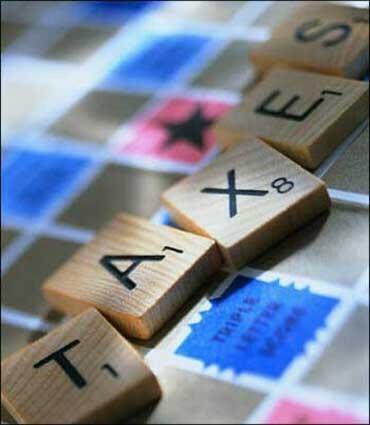 | « Back to article | Print this article |
Par panel on DTC suggests wider Income Tax slab
A Parliamentary panel has recommended the Income Tax exemption limit be raised to Rs 300,000 a year in its report on the Direct Taxes Code Bill, against Rs 180,000 at present.
Raising hopes of some relief for taxpayers in the coming Budget, the report was tabled in the Lok Sabha on Tuesday.
The Bill, which will replace the I-T Act, 1961, is expected to be effective from April 1, 2013.
Although introduction of the Direct Taxes Code, earlier scheduled for April 2012, may be pushed further due to lack of time to complete necessary formalities, submission of the report by the Standing Committee on Finance at this juncture may pave the way for the introduction of some provisions of the Bill in the Union Budget on March 16.
Click NEXT to read further. . .
Union Budget 2012-13: Complete coveragePar panel on DTC suggests wider Income Tax slab
The panel suggested 10 per cent tax be levied on taxable income between Rs 300,000-10 lakh (Rs 1 million), 20 per cent between Rs 10-20 lakh (Rs 1-2 million) and 30 per cent on income over Rs 20 lakh (Rs 2 million).
At present, the slabs are Rs 1,80,000-500,000, Rs 500,000-800,000, and above Rs 800,000, while the slabs proposed by the finance ministry under the Direct Taxes Code Bill were Rs 200,000-500,000, Rs 500,000-10 lakh (Rs 1 million) and above Rs 10 lakh (Rs 1 million).
The committee said Rs 21,094 crore (Rs 210.94 billion) were collected as income tax from 27 million tax payers in the Rs 0-10-lakh (Rs 1 million) slab, while Rs 10,185 crore (Rs 101.85 billion) were collected from 33 million taxpayers in the Rs 10-20-lakh (Rs 1-2 million) slab.
Click NEXT to read further. . .
Union Budget 2012-13: Complete coveragePar panel on DTC suggests wider Income Tax slab
It said tax collected in the above Rs 20-lakh (Rs 2-million) slab was at Rs 53,170 crore (Rs 531.7 billion) and the total number of taxpayers was 185,000.
The report suggested the investment limit for tax savings schemes be increased to Rs 320,000, against Rs 200,000 suggested under Direct Taxes Code.
It suggested the wealth tax limit be pegged at Rs 5 crore, against Rs 30 lakh (Rs 3 million) at present and Rs 1 crore (Rs 10 million) suggested in the Direct Taxes Code Bill.
The panel, headed by Bharatiya Janata Party leader and former finance minister Yashwant Sinha, agreed with the Direct Taxes Code Bill on various points.
For example, it did not recommend any change to the proposed corporate tax rate of 30 per cent.
Click NEXT to read further. . .
Union Budget 2012-13: Complete coveragePar panel on DTC suggests wider Income Tax slab
It also recommended abolition of the Securities Transaction Tax.
The report wanted the government to cautiously implement the General Anti-Avoidance Rules.
These provisions, contained in the Bill, are aimed at authorising the tax department to demand tax in situations where the main motive of a transaction is to have a tax advantage.
These provisions have assumed importance after the government lost the Vodafone case in the Supreme Court, and many believe the next Budget may incorporate this proposal, even before the introduction of the Direct Taxes Code.
Union Budget 2012-13: Complete coverage



